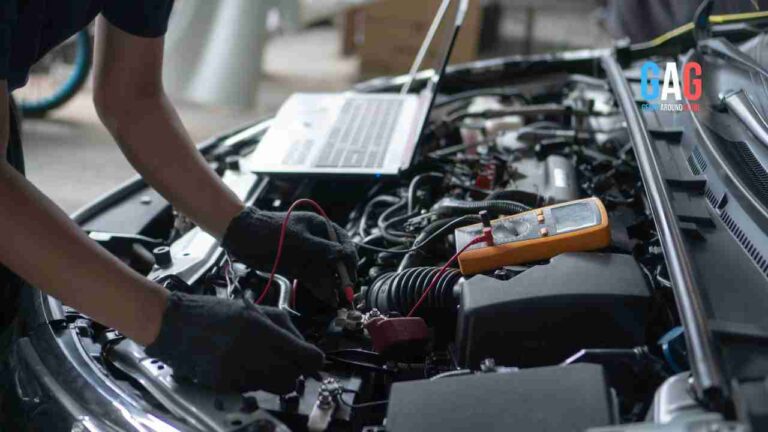Buying a car is a significant investment, and for most people, it is one of the most expensive purchases they will make — it’s an intricate affair that in most cases means a huge punch in the average consumer’s wallet. A tango, a waltz, a cha-cha dance between your wishes and your budget. As such, a vast majority of people decide to switch from a brand new car mindset and go for a great well-used Pre-owned. Saving big bucks in the process. Still, when buying a used car, there are two main options to choose from: buying from a used car dealer or a private seller. In this article, we will weigh the pros and cons of each option and provide tips for making an informed decision.
Main options for purchasing a used car — Dealer Vs. Private seller
When it comes to splurging a used car, there are two main avenues you can traverse: buying from a used car dealer or a private seller. A used car dealership is a business that buys and sells used cars, and they have a wide selection of vehicles to choose from — in most cases, they flip the car, just like a house, giving it maintenance and tweaking some of its quirks.
On the other hand, private sellers are individuals who are selling their used cars directly to buyers.
Buying from a used car directly from a private seller
Sadly, in this case, the cons outweigh the pros. And it all comes down to a mix-and-match affair of intangibles and speculation. Let us explain.
In most cases, private individuals will fall into 2 categories:
- The mechanic: those that know a bit or two about the car they have, and its inner workings.
- The amateur: those that are utterly ignorant of the whole affair, and look at a combustion engine like something out of a fantasy novel.
How these two types operate will determine the type of vehicle you’re getting. For example, let’s say the whizz kid mechanic knows his engine is shoddy, that it’s leaking — he’ll either fix it, or put a temporary patch just to sell the vehicle.
What about type number two? Well, in most cases he won’t even know that his engine is shoddy. All he knows is that that car goes “vroom” when he or she turns the key.
With private sellers, the con is your dealing with, well, private sellers — unknown quantities with no legal restrictions or moral clauses to bind them, just their own.
You’re having to contend with their foibles — and their ethical and educational inclinations. Without it, we might add a legal framework to back you up.
Buying from a used car dealership, pros, and cons
Buying a used car from a dealership can be a great way to get a reliable vehicle at a lower price than buying new one — it’s fast and easy. Nonetheless, it’s important to do your research and be prepared before making a purchase. Next up we’ll provide you with a flyby and checklist of the main of the advantages and disadvantages of the whole affair.
Pro/benefits of buying a used car from a dealership
If you’re looking in the market to splurge on a new spiffy purchase, buying a used car from a dealership is the way to go. It comes with several benefits and primo advantages, such as consumer protection laws and warranties, plus you have options— lots of them. From the vehicles available for your financing.
Your protection— the law is on your side.
One of the main benefits of buying from a dealership is those great consumer protection laws and warranties that come with making a legitimate purchase at an actual store.
Aside from that, products normally come with limited warranties which normally cover the car’s mechanical and electrical components, this can do wonders for a client’s peace of mind to buyers. Now, let’s talk about consumer protection laws. These laws are meant to protect the buyer, that’s you, from getting ripped off by unsavory sellers. These laws make sure that sellers are transparent in their dealings and do not engage in nasty practices.
A wide catalog to choose from
Another advantage of buying from a dealership is that they have a wide selection of cars to choose from. Dealerships buy vehicles from auctions, trade-ins, and direct purchases, which means that buyers have access to a broad range of automobiles. This makes it easier for folks to find the right car for their needs, whether they are looking for a small hatchback or a large SUV.
Financing is easy
Plus, dealerships often offer financing options, which can make it easier for buyers to purchase a car. They work with banks and other financial institutions to offer competitive rates and flexible repayment options. And, if that wasn’t enough, dealerships may offer trade-in opportunities, allowing buyers to trade in their old car as part of the deal. This can reduce the overall cost of the new car and make it more affordable.
Disadvantages/cons of buying a used car from a dealership
Under pressure
One of the biggest disadvantages of buying a used car from a dealership is the sales pressure that individuals often face. Salespeople may use aggressive tactics to convince buyers to purchase a car, even if it’s not the right fit for them — sometimes even influencing a decision just so the buyer purchases the costliest car on their lot. They may try to push you, the buyer, into making a rushed decision or use all manner of tactics or persuasive language to make the car seem more enticing than it actually is. This pressure can make it challenging for buyers to really think things through and take their time when they need to make an informed decision.
Hidden clauses
Another con in the whole madcap tango of buying from a dealership is the potential for hidden fees. While dealerships are required by law to disclose all fees associated with the purchase, some may still try to sneak in additional charges — they try to slip them under the table. Dealers are crafty that way. These secret, hush-hush fees may include documentation fees, which cover the cost of preparing the paperwork for the sale, or preparation fees, which are basically the cost of cleaning and detailing the car before it’s sold — they are the equivalent of buying a concert ticket and getting charged “a processing fee.” While these fees may seem small, they can add up quickly and increase the cost of the car.
Sell you something you don’t need
Dealerships may also try to up-sell buyers more expensive cars or additional features they may not need. They may suggest upgrades such as leather seats, premium sound systems, or navigation systems, which can significantly uptick the cost of the car. While some of these upgrades may be useful, buyers should carefully consider whether they are worth the additional cost. It’s essential to do research and know what features are important to have before going to the dealership to avoid being upsold on knick knacks that are not necessary.
Expert negotiators
Buying from a dealership may also have limited negotiation opportunities. While some dealerships may be willing to discuss and barter on the price, others may have a fixed price that is non-negotiable. This can make it difficult for buyers to get the best possible deal on their purchase.
While dealerships offer consumer protection laws and warranties, a wide selection of vehicles, financing options, and trade-in opportunities, buyers should also be aware of the potential for sales pressure, hidden fees, and up-selling. By doing research, and going deep – really self-examining your desires and your current financial status – buyers can better know what they want, and carefully consider their options.
Tips for buying a used car from a dealership
When buying a used car, whether from a dealer or buying it from a private seller, it is critical to make an informed decision. To not just jump headlong into the messy process but come to terms with what it is you’re buying and taking your time in doing it.
Here are some tips to help you make the best choice for your needs and budget.
Cross off your T’s and dot your i’s
Do your research and compare vehicles from all available sources. Before making a purchase, spend some time dissecting the vehicle you are interested in and comparing prices from both dealerships and private sellers. This will give you a better understanding of the market value of the vehicle and help you make a more informed decision.
Under the microscope
Inspect and test drive the car thoroughly. Kick the tires a bit. Put it to a field test. Whether you are buying from a dealer or a private seller, it is essential to inspect and test drive the vehicle thoroughly. Look for signs of wear and tear, check the engine and transmission, and take that jalopy for a test drive to get a feel for how it handles on the road.
Check its history
Obtain a vehicle history report. A vehicle history report can provide valuable information about a car’s chronology — and basically, if it has a hidden no-no within its mechanical DNA — including accident reports, ownership history, and maintenance records. This information can help you make an informed decision and avoid buying a car with hidden issues. It’s a make-or-break point between getting a good car or a jalopy.
Your personal preference
Take into account your needs, wishes, desires— basically your personal preferences and needs. When choosing between buying from a dealer or a private seller, it is essential to consider your wishes. Do you prefer a wide selection of vehicles, a smorgasbord, and great financing options, or do you value one-on-one interaction with the previous owner and the potential for unique finds? Make a list of your priorities and use it to guide your decision.
Ultimately, the decision comes down to your personal preferences and needs. By doing your research, inspecting and test-driving the car thoroughly, obtaining a vehicle history report, and considering your priorities, you can make an informed decision and find the right car for your needs and budget.







